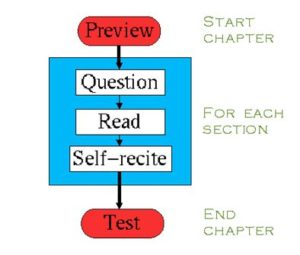Well, we’re back and ready to provide you with some more exciting tips on how to manage your (unexpected) transition to online learning. And, don’t forget to join us on Friday, March 20th at 1pm EST for our webinar on how to make these SAT / ACT schedule changes work to your advantage!
Here we go…
#6 Use your screens, then put them to bed
We know it might feel like your phone is your lifeline to the outside world. And we love our screens too! But as educators we recognize that there are times when screens just need to go off. Rather than play another round of Plants vs Zombies, grab the whole family and try a board game or maybe even a classic puzzle. Trust me, you won’t find a better distraction from stress than searching for that exact tiny grey piece in a 1,000 piece puzzle composed mostly of clouds and sky. (Can you tell how I’m spending my free time during this quarantine?)
And, Dr. Monica Lewin, Sentia’s Director of Learning and Teaching, reminds us all (me included!) to avoid bright artificial light before bedtime. Instead, do some journaling in an old-fashioned notebook to jumpstart your creativity, take notes or to organize your tasks for the next day, or just read a book.
#7 Learn something new
We all have something on our list that we have been “planning” to do for ages. Mine is to learn how to brew the perfect cup of coffee.
Listen, I know that technically your day is already spent learning, but this is your chance to learn the exact thing that you want! Fascinated by Japanese culture? Learn how to draw anime. Ready to step up your breakfast game from a hastily grabbed Cliff bar? Let Thomas Keller show you the art of cooking the perfect fried egg. Obsessed with sports? Become a master statistician and learn how to predict game outcomes.
#8 Read
Remember reading for pleasure? It was that thing you did before you had to read a hundred pages a night for History and English classes. Well, now’s a great time to get a few pages in. Sure, you can work your way through some of the greatest works in the English language. But if you want to read Harry Potter for the first time (meaning: again) I won’t judge. Just pick up a book, put your phone on airplane mode, and get lost for an hour.
#9 Practice gratitude
These are challenging times and it’s normal to feel anxiety. Write in a notebook three things you feel grateful for today – maybe it’s your family, friends, health, even a beloved pet you now have a bit more time with. Whatever you choose, big or small, reflecting on what’s good in your life has the capacity to make each day a little better.
If you need help staying on track with school assignments, getting ready for the ACT, SAT, or Subject Tests, or just learning something new, we’re here to help. Sentia’s Academic Mentorship tutoring is significantly discounted for families affected by COVID-19 school closures. Talk it over with your parents and then email or call us today to create a bespoke program tailored perfectly to your unique needs.
At Sentia, we don’t just tutor, we’ll be with you every step of the way™.

